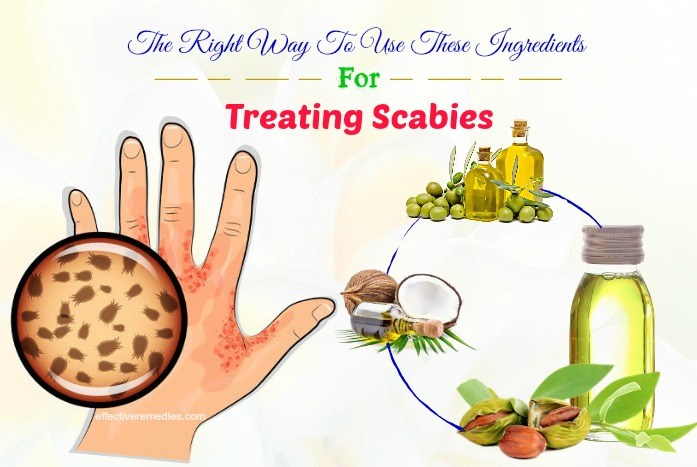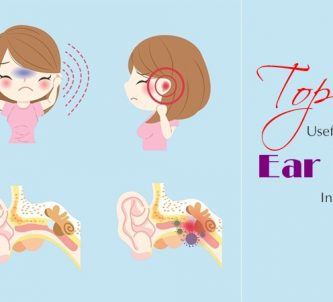In This Article
Scabies is a contagious, uncomfortable skin condition that is commonly seen in babies, children, and young adults. This condition can spread fast among people who have direct contact with each other, including nursing homes and child care centers. It generally appears on the buttocks, shoulder blades, under the breasts, around the waist, soles of the feet, between the fingers, around the genital area, on the knees, in the armpits, and near the elbow. Prompt treatment is important to soothe the symptoms of scabies. To deal with scabies, there are multiple OTC and prescription medicines. However, you can also begin treatment at home by using some simple natural remedies like tea tree oil. This oil has powerful antimicrobial agents that may help to combat a variety of skin disorders, including scabies. Continue reading this article to know more about why you should use tea tree oil for scabies treatment and how to use it correctly in kids and adults.
- Most effective home remedies for scabies treatment in humans
- Health & beauty benefits of tea tree oil – uses & side effects
Top 2 DIY Recipes With Tea Tree Oil For Scabies Treatment In Kids & Adults
I. Which Ingredients Will Work Best For Treating Scabies?
You can easily battle scabies on babies and adults with ingredients such as tea tree oil, olive oil, and coconut oil. Let’s check out the benefits of all the ingredients in these DIY recipes for scabies treatment.
1. Tea Tree Oil
According to a 2006 study[1], tea tree oil is a wonderful treatment for a few common animal and human infestations, including white fly, head lice, and sheep lice. The oil is well known for its terpinen-4-ol, which is excellent for destroying parasite contributing to scabies. The terpenoids[2] in it help kill the scabies mites and heal your skin. In addition to this, it is chock-full of the disinfectant, anti-inflammatory, antiseptic, antibacterial, antifungal, antiparasitic, and wound-healing qualities, making it a potential remedy for scabies.
2. Olive Oil
Olive oil comes with the fat-soluble vitamins E, A, D, and K that may be beneficial for your skin. Olive oil works as a toxin by destroying the eight-legged bug. It provides relief from pain and treats the infestation effectively.
3. Coconut Oil
When applied to the infested areas, coconut oil will aid in suffocating the mites and killing them. Besides, it comes with excellent penetrative properties that can enhance the ability of tea tree oil to touch the lower layers of the skin.
II. The Right Way To Use These Ingredients For Treating Scabies
EffectiveRemedies Partner Solutions

Ask a Doctor Online and Get Answers in Minutes, Anytime!
Have medical questions? Keep asking questions to a Verified Expert until you get the answer you need.
Below are three DIY tea tree oil recipes for scabies on babies and adults.
1. Olive Oil & Tea Tree Oil For Scabies In Kids
You Will Need
- Tea tree oil – one tablespoon
- Olive oil – one tablespoon
What To Do
Firstly, pour the tea tree oil into a bowl and later add the olive oil to it. Mix these oils well and immerse a cotton ball in this mixture. After that, start applying it to the affected areas of your baby. Repeat the process daily for two weeks.
2. Coconut Oil & Tea Tree Oil For Scabies In Adults
You Will Need
- Tea tree oil – 10 drops
- Coconut oil – one tablespoon
What To Do
The first step is diluting the tea tree oil with the coconut oil until you have a smooth blend. The following step is applying the mixture to the affected regions of your skin. Massage your area for several minutes and leave it on. For best results, redo it twice a day.
Note: Nursing mothers and pregnant women should refrain from using tea tree oil. This oil can also irritate sensitive skin. So, test the treatment on a tiny area first if you own sensitive skin.
Now that you already know how to use tea tree oil for scabies treatment. Then, try the above recipes right away to cope with this problem. Do you know other ways to use tea tree oil for scabies in adults and children? Tell us in the comments section below. All of the contents provided in this article are for informational & educational purposes. We recommend you consult a healthcare professional to determine which method is appropriate for you.









